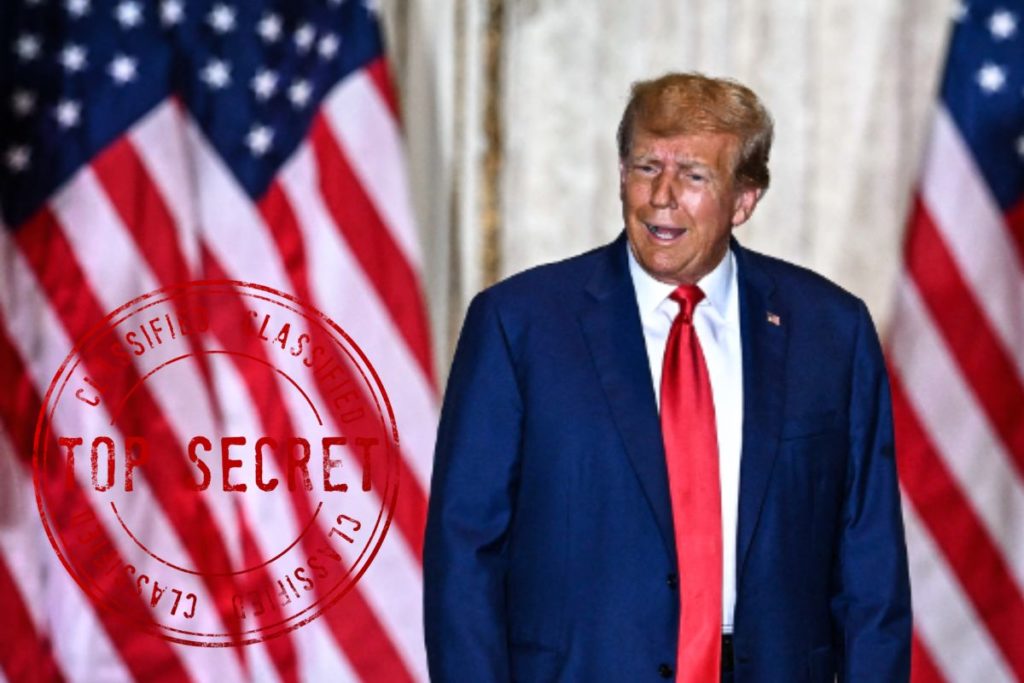The political landscape in the United States is poised for a seismic shift as discussions surrounding the potential indictment of former President Donald Trump intensify. Recent reports have revealed the existence of classified documents that could play a pivotal role in the legal proceedings against Trump. This article delves into the implications of a Trump indictment and the impact of classified information on the case. By examining the legal, political, and national security ramifications, we aim to illuminate the complexities surrounding this significant development.
The Potential Indictment of Donald Trump
The prospect of indicting a former president is rare in American history, with profound implications for the rule of law and the democratic system. As investigators and prosecutors gather evidence, including testimonies and documents, the decision to indict Donald Trump will depend on the assessment of legal experts and the weight of the evidence presented.
Classified Documents and their Role:
Recent revelations suggest the existence of classified documents that may hold crucial information related to Trump’s conduct and potential legal infractions. Classified information refers to sensitive material protected by national security measures and restricted from public disclosure. In the context of a possible indictment of a former president, including classified documents presents unique challenges and considerations.
Legal Complexities and National Security Concerns:
Using classified documents in a legal case demands a delicate balance between transparency, national security interests, and the pursuit of justice. Courts must handle classified information without compromising ongoing intelligence operations or revealing sensitive sources and methods. Protecting national security interests may require redactions or limitations on disclosing classified information during legal proceedings.
Classified Documents and the Defense:
In the event of an indictment, Donald Trump’s defense team will have the opportunity to challenge the use of classified documents and argue for their exclusion. Defense attorneys may argue that introducing classified information infringes upon Trump’s right to a fair trial or poses a risk to national security if disclosed in an open court. This aspect introduces an additional layer of complexity and legal argumentation.
Political Fallout and Public Perception:
The indictment of a former president is a legal matter and a highly political event. The revelation of classified information during legal proceedings could have far-reaching consequences regarding public perception and political polarization. Supporters of Trump may view the inclusion of classified documents as an attempt to undermine his presidency. At the same time, opponents may see it as necessary to ensure accountability and uphold the rule of law.
Precedents and Historical Context:
Although indicting a former president is relatively uncharted territory, there are historical precedents that provide valuable insights. Past cases involving classified information, such as the trial of Scooter Libby in 2007, offer lessons on how courts have handled the intersection of national security concerns and legal proceedings. These precedents can guide judges, prosecutors, and defense attorneys in navigating the complexities of introducing classified documents in a high-profile case.
Implications for the Rule of Law:
The potential indictment of Donald Trump and the inclusion of classified documents in the proceedings have profound implications for the rule of law in the United States. The outcome of this case will set a precedent for future actions against high-ranking officials and shape public perception of the accountability mechanisms in place for those in positions of power. The ability to fairly and transparently address allegations against a former president is essential for maintaining trust in the country’s democratic institutions.
Conclusion:
The potential indictment of Donald Trump and the inclusion of classified documents in the legal proceedings represent a significant turning point in American politics and the administration of justice. Balancing the demands of justice, national security, and the public’s trust is complex and delicate. Using classified documents introduces unique challenges, requiring careful navigation of legal complexities and national security concerns.
As the legal process unfolds, it is crucial for all parties involved to uphold the principles of fairness, transparency, and adherence to the rule of law. Judges, prosecutors, and defense attorneys must work diligently to balance the need to disclose relevant information and the imperative to protect national security interests.
Moreover, the political ramifications of a Trump indictment and the introduction of classified documents cannot be ignored. The polarization that has characterized American politics in recent years may be further exacerbated as supporters and opponents of Trump interpret these developments through their respective lenses.
The public needs to have confidence in the integrity and impartiality of the legal system throughout this process. Clear communication about the legal procedures, the handling of classified information, and the safeguards to protect national security help foster trust and understanding.
Ultimately, the outcome of the Trump indictment case and the role of classified documents will shape future legal actions against high-ranking officials, influence public perceptions of accountability, and have long-lasting implications for the democratic fabric of the United States.
In conclusion, the potential indictment of Donald Trump and the use of classified documents in the legal proceedings against him present a complex and multifaceted situation. Balancing the demands of justice, national security, and public trust is a formidable task that requires careful consideration. The legal process must adhere to fairness, transparency, and the rule of law while safeguarding national security interests. The political fallout and public perception surrounding this case further underscore the importance of upholding the integrity of the legal system. Ultimately, the resolution of this case will have significant implications for the future of accountability and the rule of law in the United States.

